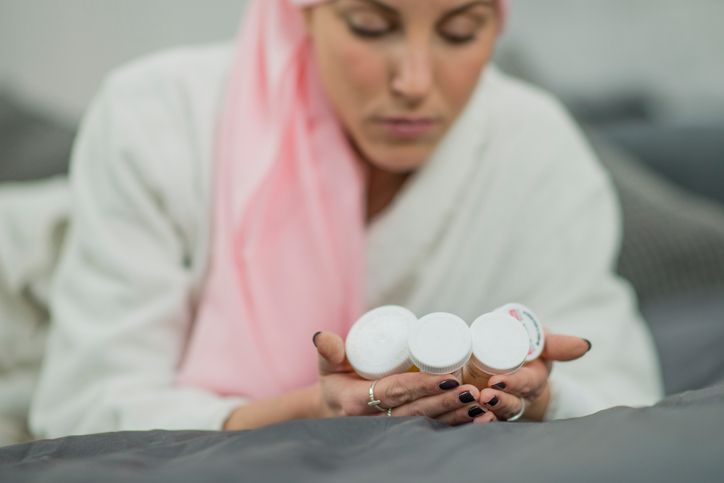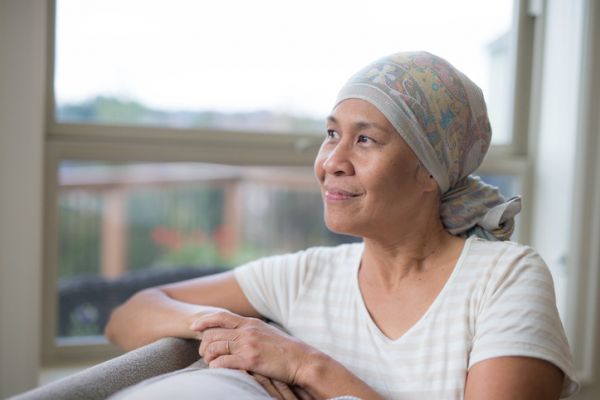Oral chemotherapy — cancer medication that is taken by mouth instead of through a needle — has become a treatment option for a growing number of people.
While oral chemotherapy (chemo) can be just as effective as infusion chemo, and likely more convenient, it can present challenges.
For one thing, it can be very expensive, so be sure to check with your health insurance company to see if it is covered. Oral chemo drugs often need special insurance approval (prior authorization) and may not be available at your neighborhood pharmacy. (The manufacturer of each medication decides whether their drugs are available only through a specialty pharmacy.)
This article, however, will focus on the importance of understanding how to handle, take and dispose of these extremely powerful drugs.
What you should know
Before you begin oral chemo, discuss the process with your healthcare provider or clinical pharmacist and learn the following about your chemotherapy plan:
- The generic and brand names of your medication
- The basics of how it works
- When and how to take it, and what to do if you miss a dose
- Precautions (what you need to tell your doctor before you begin)
- Any foods or medications that may interfere with the effectiveness of the chemo
- Side effects and how to manage them
- When to call the doctor
Safe handling and storage
Find a place in your home to store your oral chemotherapy that is separate from your other prescription and nonprescription medicines. In addition:
- Store the medicine properly. Keep it in the original container and store at room temperature away from direct sunlight, excessive heat, cold, humidity, and sources of water (avoid storing in the bathroom).
- Read the medication package insert/attached instructions to see if there are additional storage requirements for your medication, such as refrigeration.
- Keep it out of the reach of children and pets
- You are the only one who should handle this medication. If a caregiver is assisting, they should wear medical gloves.
- Wash your hands thoroughly before and after taking the medication.
- Never break, crush, chew, or open your tablets or capsules unless otherwise instructed — most need be taken whole.
- Avoid contact with bodily fluids. Chemotherapy can stay in the body up to several days after each dose. During this time, it can be present in bodily fluids such as urine or vomit. This requires some extra safeguards for caretakers and patients:
- Wear gloves when cleaning the toilet, soiled sheets, or any bodily fluids.
- Always wash your hands after coming in contact with bodily fluids.
- Caregivers should consider using a different toilet than the patient, if possible. However, it is safe to use the same toilet as long it is kept clean.
If a person or pet is exposed to or ingests your medication, keep calm. If exposure was to the skin, flush the area with water. If medication was swallowed, call the Poison Control Center immediately at 1-800-222-1222.
Never miss another Cancer Talk blog!
Sign up to receive our monthly Cancer Talk e-newsletter.
Sign up!Safe disposal
Keep your oral chemotherapy stored in a safe place until you can return it or dispose of it properly through:
- Roswell Park’s drug disposal containers on the 1st floor of the main hospital. They are located just past the ATM on the left.
- New York State’s Take Back programs for the collection of household drugs. Go to the NY Department of Conservation website and click on “Find a free collection site near you."
- Do not put chemotherapy medications in the garbage or down the toilet. If there is an urgent need to dispose of your medication and there are no drop off locations near you, follow these instructions: Mix whole pills (do not crush or open) in water and add salt, dirt, ashes, or cat litter. Do not hide them in food. Put the mixture in a bag, box, or plastic tub that you can seal. Secure the container with strong tape. Place the sealed container in your trash as close to trash collection day as possible.
Keeping track
Taking your medicine at the same time every day is important.
- Try writing down each dose on the calendar and marking it off each day, setting an alarm on your phone, or using a pill box.
- Keep track of how the medicine makes you feel and any side effects. Tell your Roswell Park care team so that they can work with you to minimize the side effects of your medications.
Medications used to treat cancer have a major impact on your body, regardless of whether they are given by intravenous infusion or taken by mouth. For these medications to be effective, and to keep you and your loved ones safe, they must be taken properly and handled safely.

